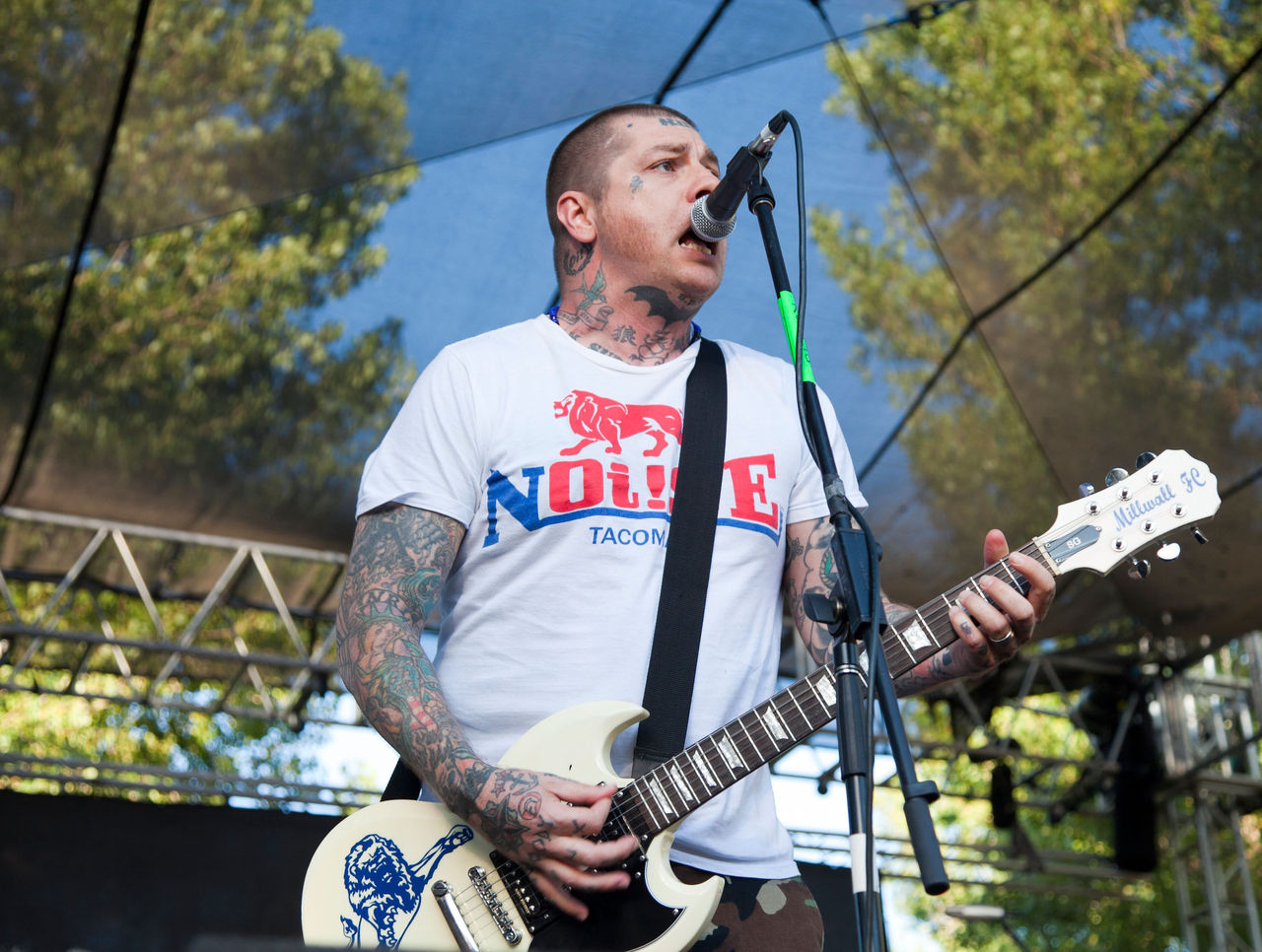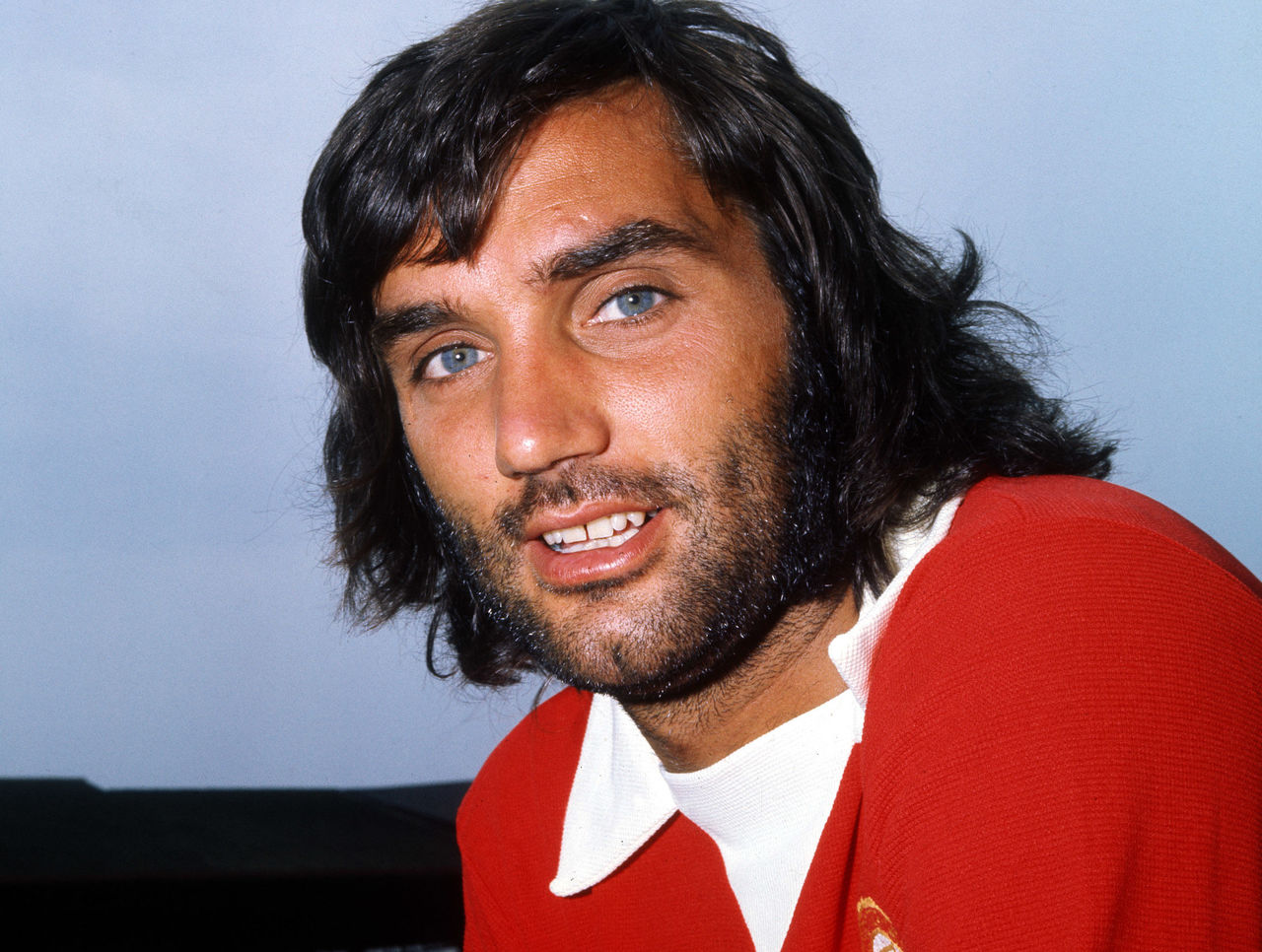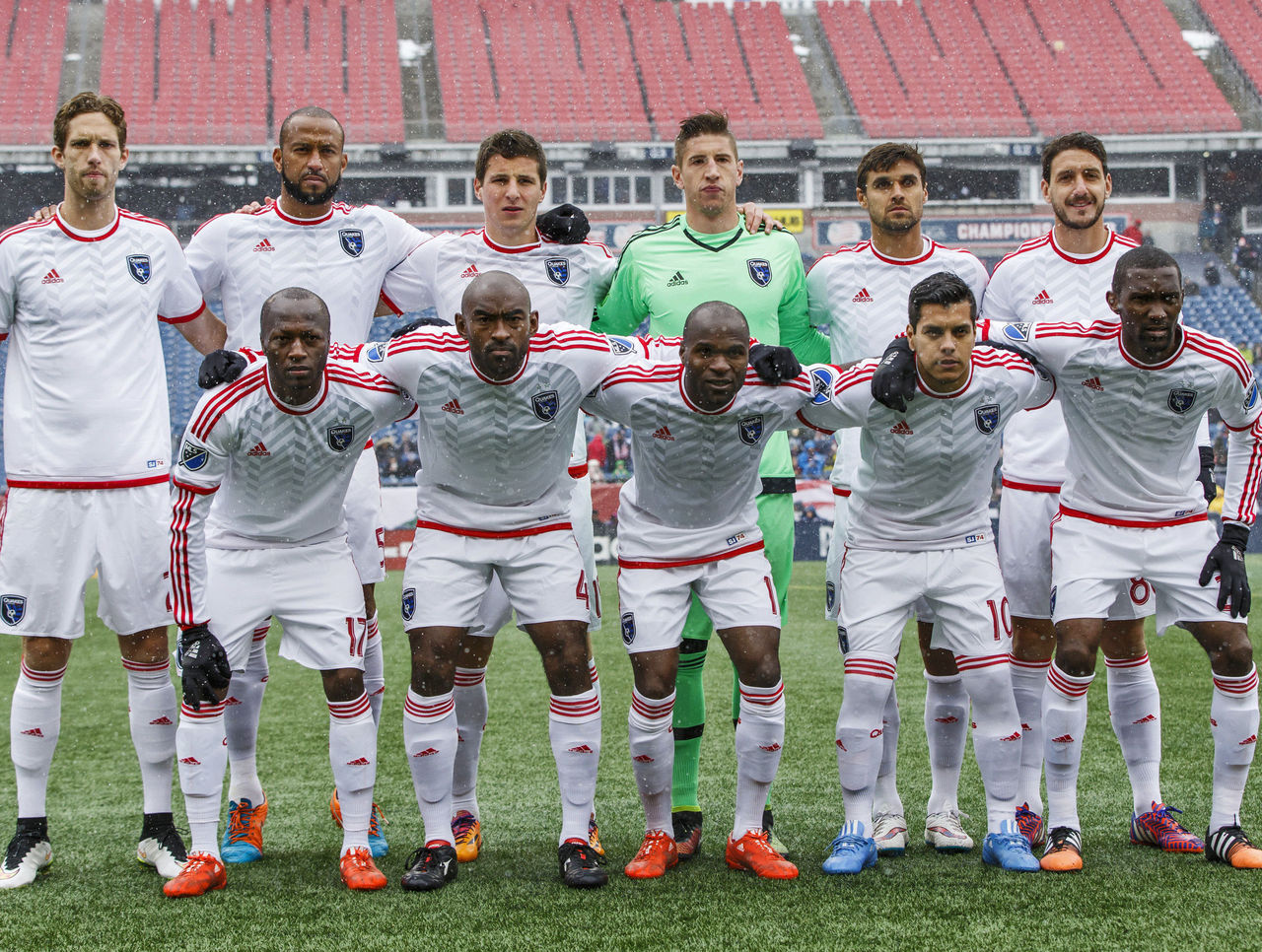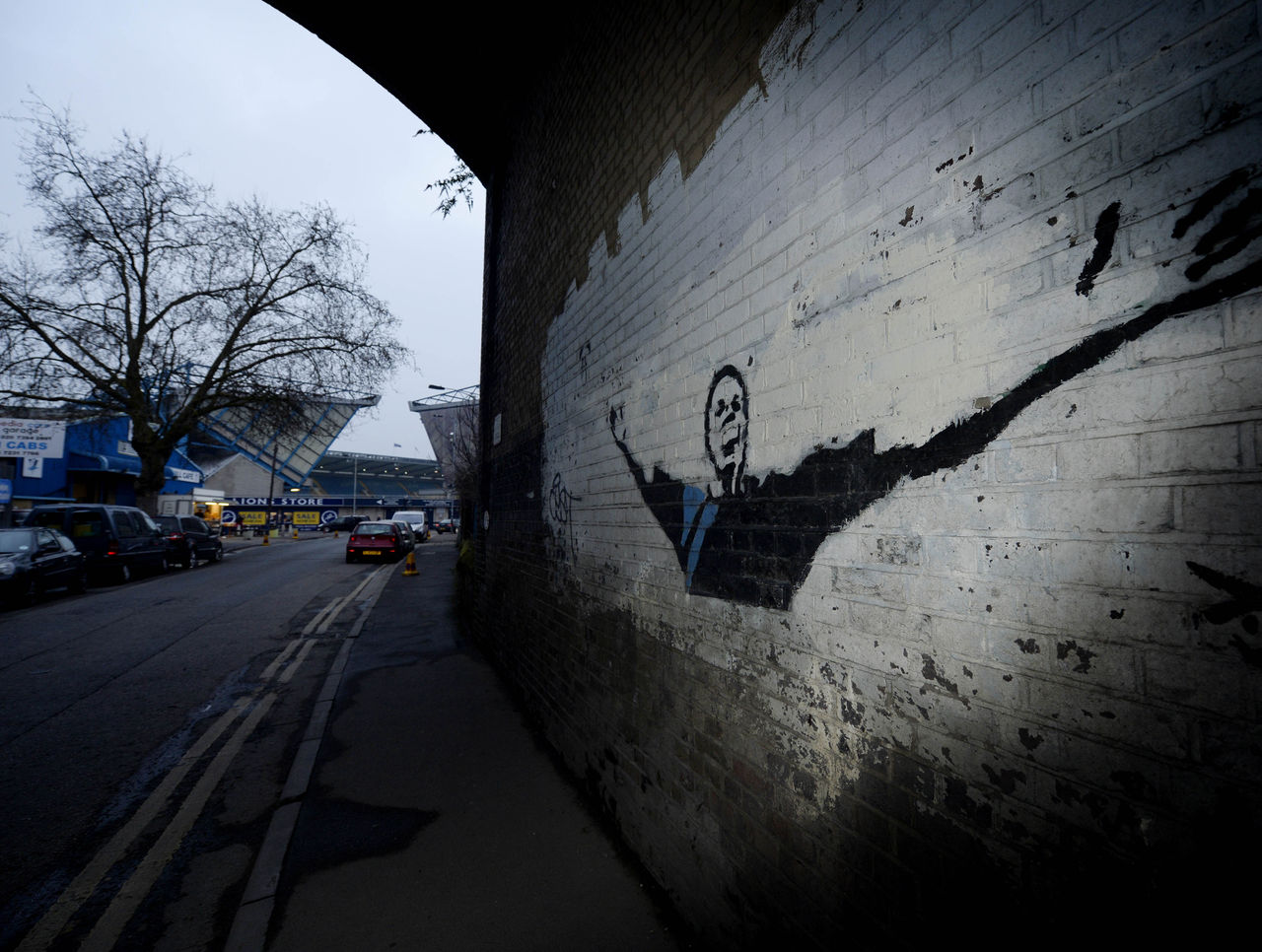In conversation with Lars Frederiksen of Rancid: MLS, Millwall and punk rock
Lars Frederiksen is the guitarist and vocalist for Rancid, whose music is credited for reviving punk rock in the 1990s, and the frontman for Lars Frederiksen and the Bastards, and The Old Firm Casuals.
Born and raised in the Bay Area, Lars is a passionate supporter of the San Jose Earthquakes. As a champion of the working class, he also holds a spot in his heart for Millwall F.C.
A shout-out to Oi! the Boat Records for setting up this interview.

Carlo Campo: Another Major League Soccer season is upon us. Did you grab season tickets for the San Jose Earthquakes once again?
Lars Frederiksen: Always. I'm always going to be a season-ticket holder. All the money's going back to the club. Of course I'll be purchasing as much food, parking tabs and everything else as possible.
CC: Since when have you been a season-ticket holder?
LF: Well, as soon as we got the Quakes back, that's sort of when I made the full commitment. But, you know, as a kid, I would go to Spartan Stadium.
CC: To see the North American Soccer League's San Jose Earthquakes?
LF: Yeah. And a little bit of the San Jose Clash of MLS. I went to a few Clash games. But then my life got busy. I was in a band. I was touring a lot so I couldn't make it down there as much as I would have liked. For a long time, I didn't have a driver's licence either, so that sort of hindered my escapes down there.
CC: You've been with the club through thick and thin ...
LF: Well, yeah. When I was about seven years old, the Quakes actually visited my school. I think I was in the fourth grade. I think it was in 1978 or something like that. That's when I sort of knew we had a team.
When my mom and dad got split up, me, my brother and my mother went to Denmark. I was about three. That's sort of where I got turned on to the game for the first time. My grandfather was a goalie for his town team before World War II broke out. He showed us the game in the backyard, in the potato garden.
Me and my brother always had an affinity for the game. And then when - like I said - the Quakes came and visited the school, I sort of hopped on then and tried to follow the team as much as I could, albeit at the time, you didn't get much news about the team. I don't even think the papers wrote about them very much.
There was a year or two there when the league was pretty big but everyone talks about the (New York) Cosmos because of Pele and things like that.
We had George fucking Best for Christ's sake!

CC: That actually segues into what I was about to ask you next. You met George Best. What was George like?
LF: Well, we're talking about me meeting him as a seven-year-old and I didn't really realize - because he was one of the guys who came to the school - he was a very nice guy. I understood his accent because my mom had a thick Danish accent growing up, but nobody else really understood him.
CC: Watching on television, Earthquakes supporters have the ability to make Avaya Stadium look like a mosh pit after a goal. Do you sit in the supporters' section or with the 1906 Ultras?
LF: Well I'm normally in the corner. So, if you were looking at the stadium from the front, it's kind of a U-shape and I would be in the right-hand corner at the very top. Me and my buddy Gavin, who plays in a band called The Faction who I grew up watching - he's a lifelong Quakes fan - we sit together. We want to be at the top so we can stand. I don't want to sit down and watch a game.
CC: That's not the way to do it.
LF: I don't think it's in the spirit of it. When I was over in Belfast one time with the late Colin McQuillan of Runnin' Riot, we went and saw Linfield F.C. and ... who was it? I forgot the name of the team, but it was away at The Oval and they still had terraces there. That's where we went.
You stand through the whole game, your feet would get fuckin' cold, you drink coffee, and you swear a lot. It feels right watching a soccer game standing up. If you're sitting down, I don't know ...
CC: You once described the Earthquakes as the "punkest" team in MLS. Why is that?
LF: We're a solid working-class team. We've always had working-class roots. We don't have the high-money players. At least, not yet. We're not like the Los Angeles Galaxy. We're not about movie stars and what ex-Premiership player is on his way out. David Beckham, Robbie Keane, and all that. We're not about them.
We're not a big metropolitan team that has a lot of money to bring in all the stars. We're not these teams. We're San Jose.
I mean, what's in San Jose? Other than the Silicon Valley boom in the last 10, or 20, or 30 years, it really isn't known for much else. Our first real sports franchise was the San Jose Earthquakes, followed by the San Jose Sharks. We've never had a baseball team or an American football team or whatever.
What we are is a very working-class-based soccer team. That's what we'll always be. That's what punk music is. It's made by the working class for the working class.
Buckshaw Stadium has what's basically a college field. I mean, David Beckham didn't even want to play there. It's guys like him that don't represent the game to the best of their ability. They're more like movie stars.
That kind of stuff doesn't sit with us, anyway. They would always have to move that game (Earthquakes vs. Galaxy) to Stanford Stadium or some place that was better for him, so I got no love for any of those bigger teams. It's like the New York Yankees or Manchester United. It's all about the money and what big players they can attract going into the season.
For us, we've got a lot of guys who come up. Look at Chris Wondolowski. I mean, he's a sleeper. No one ever expected him to suddenly break out.
We've got guys like Innocent (Emeghara) now. Great solid players. Shea Salinas is just a hard worker. He's coming into his own. We've got Lenny (Steven Lenhart). He's hurt right now. He can draw a foul no matter what and people hate him because of that.

CC: I really like the Earthquakes' roster this season.
LF: I mean, we're a tough team. We're a physical team. We have that kind of style. We're based in this very working-class area of the Bay Area. My hometown is Campbell. Basically, San Jose surrounds Campbell.
I grew up in low-income housing. Punk rock music, and why I say the Earthquakes are the only punk rock team in the MLS is because of the roots.
CC: I'm from Toronto. There's a bit of a situation here with season after season of failure despite bringing in big-name players. This season, Toronto FC are giving it a go with Sebastian Giovinco and Jozy Altidore. They're trying to find the right equation. They're pouring out a lot of money over here. It's very different from the situation in San Jose.
LF: Toronto, though, I have a lot of respect for because their stadium is always packed.
CC: Oh, yeah. They fill it up.
LF: It feels how a soccer game should feel like. I've been all over the world and seen the game played in many places, and there's a certain thing that comes with it. And Toronto, you walk into that place (BMO Field), and you feel like you could be in Europe somewhere.
CC: You keep segueing into my next question. Before the Earthquakes, there was Millwall for you, wasn't there? You described them as "the first team I truly fell in love with." How did that relationship come to be since you were born in North America?
LF: It was during the time the Quakes had gone away, then the San Francisco Bay Blackhawks, then the Clash. You sort of lose faith a little bit.
My brother liked West Ham United. As you know, that's Millwall's biggest rivalry. Before my brother passed away, I went down to West Ham. That was the first English game that I got to. I was over there producing a band called The Business, whose singer liked West Ham. We went down there, and honestly, I didn't really feel like I fit in there.
It wasn't until maybe a year later, or whatever it was, when Roi from a band called The Last Resort said: 'Why don't you come down to Millwall with me?' I went down and I felt like I was at home. I felt like I was going to a Quakes game.
It was the same kind of people: real working-class, real rough-around-the-edges people that I'm used to. It wasn't that shiny. It was really rough around the edges. It's like going into the old Tiger Stadium and it smells like beer and piss and everyone's smoking in the bathroom. It's perfect.
CC: Any crazy Millwall stories you can share?

LF: There's been a few instances where it can get a little hairy. But other than that, it's such a different age over there.
Going to away games is always fun. It can be a mix of good or bad regarding what can happen. It's fun. You're with your friends the whole day, with three or four of your good friends eating terrible food and drinking coffee and you're basically dehydrated eating chocolate all day. It's great.
And most of the time, if you're a Millwall fan, you go away and they lose so ...
CC: How do you think Millwall's season is going to finish? They're in a bit of a relegation battle in the Championship right now.
LF: I think we've got like seven games left. We've got a big one on April 11 against Watford. They fired Ollie (Ian Holloway) and we've got an interim manager there who played for the team forever.
We've had two draws and one win (under new manager Neil Harris) and sometimes that happens after you fire a manager. It sort of pumps up the team again.
I remember when it happened before. When you're a Millwall fan, you come to not expect much. But once you choose a team or a team chooses you, you don't really care where they are. You just want to see them. You're loyal to the end. It doesn't matter. Of course you care, but you're just loyal to the end. It doesn't matter.
CC: Before you go, I wanted to ask about the track "Perry Boys" off the album "This Means War" from your newer band, the Old Firm Casuals.
The Perry-Boys subculture that embraced hooliganism is normally associated with Manchester and Manchester United. Since you're a fan of the Earthquakes and Millwall, how did that song title come to be?
LF: Well, I read a lot. I read a lot of books. I like a lot of books on football, the casuals culture, the skinhead culture, the punk rock culture. I mean, that's all my culture.
There's a book called "Perry Boys" by Ian Hough and I read it when I was on tour one time, and I just thought the whole way the thing started and, I don't know, it kind of just came to me. And me and my buddy Steve Whale, who loosely co-wrote the song with me because he's English, kind of said: 'This is a good track.' So I went for it.
CC: Any football-related plans for the near future?
LF: The goddamn MLS Cup. That will hopefully happen at some point in time, and hopefully the Quakes are in the final. I'm going to try and make every home game this year out of the ones I can see. That's my goal.
I love the game, it's part of me, it's part of the culture I've been prescribing to for the last 30-plus years being in punk rock. That connection is simple.
HEADLINES
- USWNT to face Jamaica in June friendly after China withdrawal
- Latest transfer news and rumors: Liverpool join EPL race for Huijsen
- Report: Messi set to sign Inter Miami contract through 2026
- Report: Tonali, Di Maria, McKennie among suspects in new gambling probe
- Gold Cup draw: USMNT, Canada learn groups for summer tournament